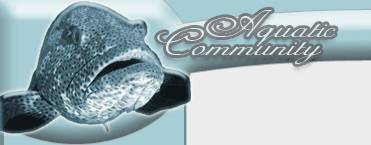Dilated cardiomyopathy in dogs
What is canine dilated cardiomyopathy?
Dilated cardiomyopathy is a condition where the heart muscles is affected, and this causes atrial and ventricular dilation in the dog and can lead to congestive heart failure. Dilated cardiomyopathy can be caused by several different reasons, including certain types of amino acid deficiency. Dilated cardiomyopathy is chiefly seen in large dog breeds, e.g. Great Danes, Doberman dogs and Boxers. Doxorubicin use can lead to dilated cardiomyopathy.
Canine dilated cardiomyopathy treatment for dogs
A wide range of drugs can be used to treat canine dilated cardiomyopathy. When a dog suffers from a sudden heart failure, the first thing to do is naturally to save its life and stabilize the heart. In order to achieve this, the veterinarian can administer nitroglycerin and diuretics. Nitroglycerin is a so called venodilator, which means that it will dilate the veins of the dog, including the ones going to the heart muscle. As a consequence of this, a lower amount of blood will return to the heart since more blood can pool in the veins of the dog. When nitroglycerin has been administered, the heart of the dog does not have to work as hard as before. Unfortunately, nitroglycerin is only effective for a few days and follow-up treatment is therefore very important. Diuretics are drugs capable of forcing excess fluid out of the body. By giving diuretic medication to the dog, the veterinarian can stimulate the kidney and get rid of fluids that have built up inside the dog as a result of the dilated cardiomyopathy. One of the most commonly used diuretics for a dog suffering from dilated cardiomyopathy is Furosemide.
In addition to nitroglycerin and diuretics, a wide range of other medications can be used for short- and long term treatment of dilated cardiomyopathy. Vasodilators are for instance very popular since they continue to be effected for a long period of time, something which cannot be achieved with nitroglycerin. Vasodilators will dilate the arteries and/or the veins of the dog. Digitalis is another drug known to improve heat function in dogs. Digitalis medication will regulate any excess of hormones that might have been released as a result of the dilated cardiomyopathy, and it will also reduce the heart rate and make each heart contraction stronger. A comparatively new type of drugs is the enzyme blockers. Enzyme blockers can go in and promptly block an out of control compensation system.
In certain dog breeds, the dilated cardiomyopathy is caused by carnitine deficiency. Carnitine is an amino acid necessary for proper heart function. If your dog suffers from this deficiency, the administration of carnitite will greatly improve the function of the heart of your dog. In some dogs, it will even reverse heart abnormalities that have developed as a result of the deficiency. Boxers are especially prone to Carnitine deficiency. Carnitine is an expensive drug and large breeds needs large amounts of it to stay healthy.
Taurine is another amino acid necessary for proper heart function. Taurine deficiency is chiefly seen in cocker spaniels. If a dog has developed dilated cardiomyopathy as a result of taurine deficiency, the administration of taurine will halt the problem and even reserve a lot of the changes in the heart that has already taken place.
Cardiovascular and circulatory problems in dogs: (click for more info)
Aortic stenosis in dogs
Congestive heart failure in dogs
Degenerative mitral valve disease in dogs
Dilated cardiomyopathy in dogs
Heart valve dysplasia in dogs
Hemolytic anemia in dogs
Patent ductus arteriosus in dogs
Pericardial effusion in dogs
Pulmonary hypertension in dogs
Pulmonic stenosis in dogs
Thrombocytopenia in dogs
Ventricular septal defect in dogs
Atrial septal defect in dogs
Tetralogy of Fallot in dogs
Von Willebrand disease in dogs
